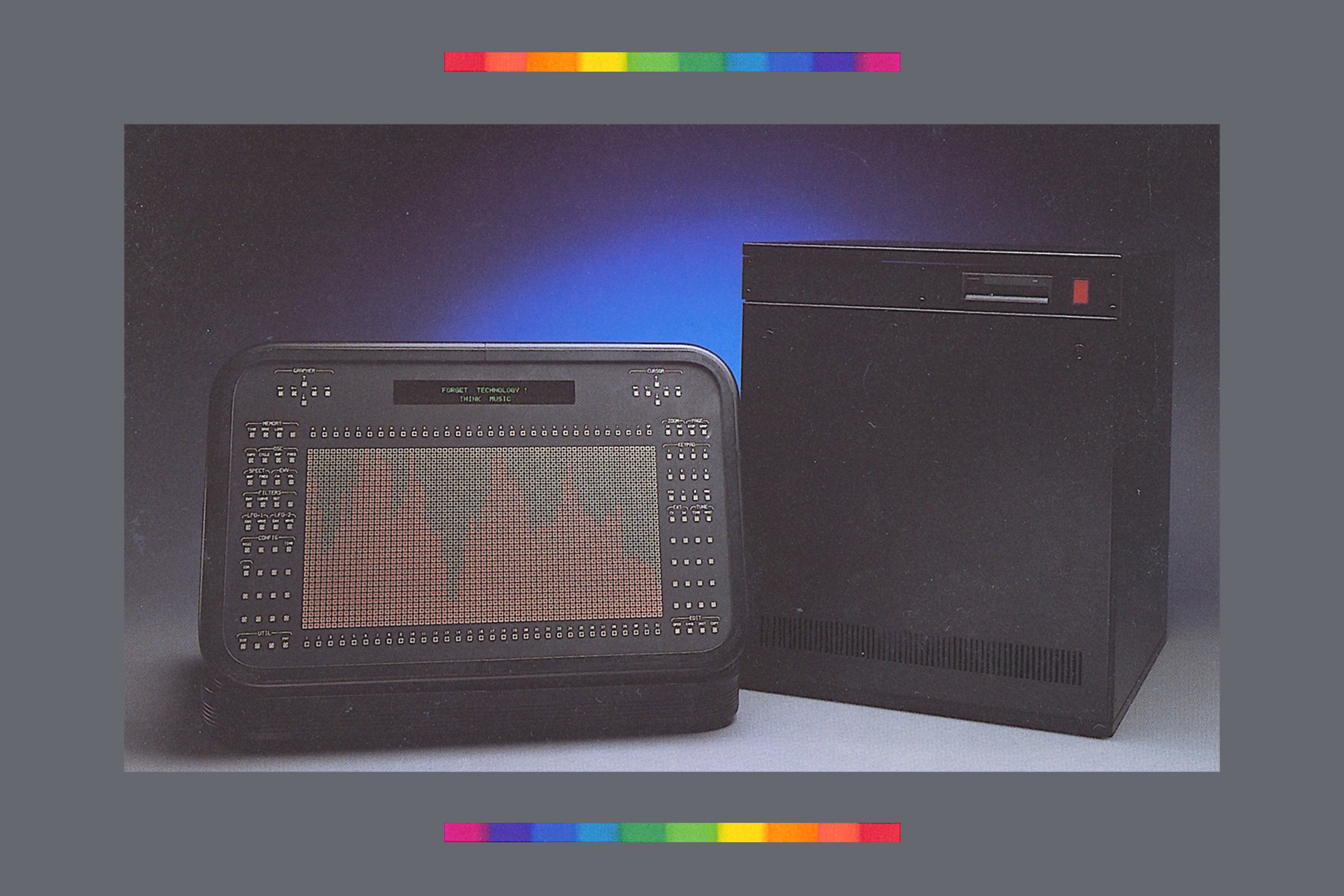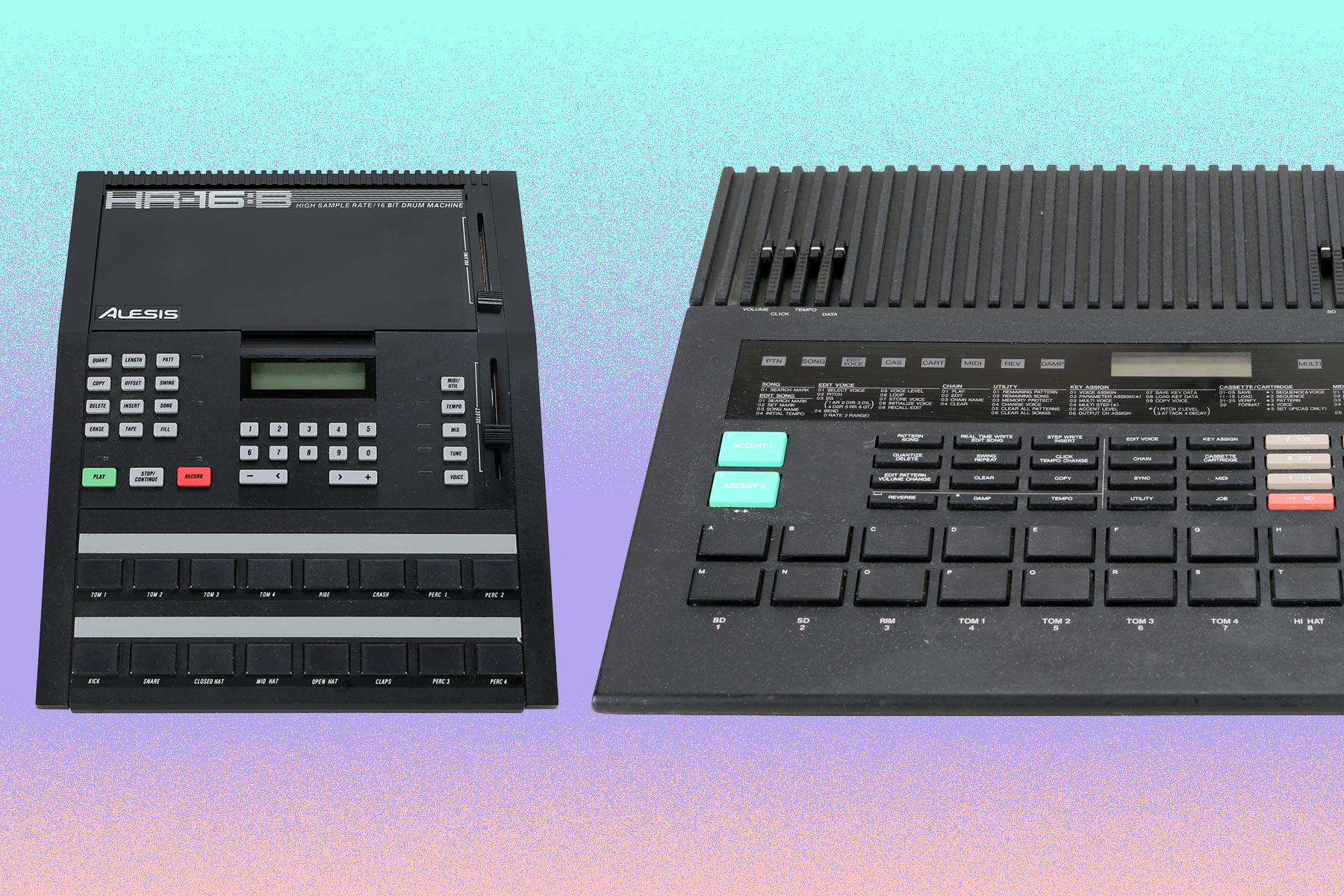It's the start of a new month: and so, a new Bandcamp Friday is upon us. Go check out Bandcamp today: on Bandcamp Friday, all proceeds from sales go directly to the artists & labels whose music you purchase. To get you started, we're sharing five of our recent favorite albums on Bandcamp—from crys cole's patient soundscapes to archival releases of unheard Buchla 200-centric pieces by Barry Schrader. If you're looking to go deep into some immersive and truly fascinating album-length works, these would all be an excellent place to dive in.
A Multi-Dimensional Journey: crys cole's Other Meetings
crys cole's music is difficult to categorize, but in many ways, her practice manifests as an emotive hybrid of concréte and lowercase music. Like many artists working in these genres, cole weaves sonic stories out of collected field recordings, and real-time gestural interactions with ordinary everyday objects, albeit highly amplified as if they are investigated under a microscope. What makes cole's work unlike anything else though is her intent focus on the transiency of the sonic phenomena, a gradual evolution from one moment to the next. No sound is overemphasized, all are happening at their own natural pace. The artist finds expression in being present, earwitnessing the surrounding as it is, documenting it, and then synthesizing an imaginary narrative akin to how memories in our minds form clusters of events, places, and people that simultaneously were and were not.

cole's latest release, Other Meetings, continues the artist's ongoing quest for extracting meaning from the mundane. The album features two durational compositions, "The time between two durations of sleep" and "Slices of cake," each of which were born out of the pandemic-instilled necessity to remain in one place for an extended period of time. Accustomed to the routinely nomadic lifestyle of a touring musician, cole was suddenly faced with having to stay in her Berlin apartment with minimal space, and a limited selection of equipment. Creatively responding to the situation, cole constructed music out of archives of recordings from her past travels, and objects she found around her such as a coffee maker, a broken digital synth from the 1980s, and a vase with dying flowers. The artist herself refers to the compositional effort as "an internal dérive, a journey that drifted through many places without a defining compass".
Each of the two tracks on the album is over 20 minutes in length, offering the listener the opportunity to take a slow-paced multidimensional stroll through the constantly evolving and shifting acoustic environment. cole skillfully plays with the juxtaposition of sounds that seem far and distant, and those that appear to be happening right next to one's ear, sounds that are inherently familiar and universal, and those whose origin is but a mystery. The combination of documentary-like and performative approaches on Other Meetings accomplishes something remarkable; it moves without being emotionally intrusive. The surreality of the soundscape is comparable to an experience of falling in, and out of sleep, where memory, imagination, and reality collide into a beautifully introspective sonic kaleidoscope—a subtle and rich-in-nuance audio dreamland.
LINK: check out Other Meetings on Bandcamp!
Deep Listening from Japan's Meitei: Tenka's Hydration
Over the past several years, Meitei has released a trilogy of albums that aim to "...capture the lost mood of Japan..." entitled Kwaidan, Komachi and Kofū. Meitei has had a narrative and a concept from the beginning, and all the while the musician behind this, Daisuke Fujita, has been creating work in his daily practice influenced by routine and the environment. Tenka 天花 is the name of this new project, and the debut release on Métron Records is called Hydration 水分補給, which is inviting and intimate in its presentation mirroring terrain, filtered through an imaginative mind.

The first tracks, "Antioxidant Shower…" and "Diverse Aesthetics...", feel like a collection of close sound objects that are within your grasp while being as elusive as smoke. Shifting and dancing in the air with a phantom breeze against a backdrop of metallic rain. "How to Spend an Aromatic Night…" is one of the most one-for-one titles on the album and truly gives you the sense of a late evening spent on the back porch surrounded by dark trees and ancient creatures revealing their true forms. The most enjoyable thing about the presentation of sound is that you are often confused as to what is making the sound and where is coming from—there are some semblices of "conventional" instrumentation, but most of the time you are surrounded by an enjoyable collage of musical textures divorced from a recognizable sound source.
Each title helps in feeling the mood of the track and "The Ocean That You Observe in My Aquarium…" feels like a deep gaze into the void. Similar to "...Aromatic Night…", you do get a strong scent, but this is something that is more similar to a fragrance: still a matter of interpretation. All of these tracks could function as a sonic incense filling the room and making itself known sporadically. Not lost on Fujita, he collaborated with Berlin-based RYOKO to create a fragrant diffuser oil that helps to expand the experience of Hydration 水分補給. Over the span of 6 tracks, you get a gentle experience that pulls you in without taking you out of the everyday; you can feel the routine, the daily observations, and often you can hear the reflections of your own life. Deeply personal and highly listenable, Tenka's Hydration is a wonderful evolution of Fujita's work.
LINK: check out Hydration 水分補給 on Bandcamp!
Sensual + Frenetic Improvisation: Embrace by Lauren Sarah Hayes
I (and many of us at Perfect Circuit) are fascinated by improvised music—especially improvised music involving the use of computers, synthesizers, and all means of peculiar electronic gadgetry. That particular fascination isn't just about the sound of electronics, though we do love the gnarly, knotted tones electronic instruments can produce. The more interesting aspect, though, is the sheer flexibility that electronic music-making provides to artists in terms of interaction: when you have the ability to make any physical input relate to any sonic outcome, what would you choose to do? How would you choose to play your instrument? How would your physical decision-making map through your instrument and to the sounds you create?
These questions are especially interesting when applied to improvisation—a musical field where sudden, spontaneous decision-making is critical. Anyone who has played a modular synthesizer, for instance, likely understands how challenging it can be to create a patch that allows for the type of turn-on-a-dime behavior required for many improvisational contexts. So, when someone does come up with a means of improvised music-making that leverages electronics in a way that really works in this context, I quickly become fascinated. How are they thinking about their instrument? What types of interactions are they employing? How does the invisible layer of "mapping" their input to the sonic outcome work?

Lauren Sarah Hayes is a prime example of what I'm describing. She is a highly intuitive improvisor who has crafted a practice that allows for spontaneous exploration of everything from fractured melodies and sparse rhythms to all-out chaos. Her performances are well-known for their physicality, often using video game controllers and Max/MSP to create a glitchy, frenetic, web of vocal samples, drum machine sounds, and synthesized tones—resulting in a sound that references both electronic dance music and academic computer music.
I've recently been listening (and re-listening and re-listening) to Hayes's album Embrace, released on Superpang in 2021. Clocking in at ~20 minutes in length, Embrace is an excellent glimpse into her unpredictable sound-world, immediately surrounding you in jarring juxtaposed rhythms, unnaturally choppy vocal samples, forceful square wave bass tones, disorienting stereo motion, and the occasional burst of some truly harsh noise. What's most striking, though, is the immediate embrace of highly animated soundscapes, ranging from the chopped-up/deconstructed/reconstructed dance music sounds of "Xeon" to the gradually disintegrating, minimal-yet-abrasive "Femme Endings," and the fantastically digital, Sun Pandamonium-esque "Don't Glitsch On My Cascade." And frankly, if album closer "Kill The Cop In Your Head" isn't a banger...I don't know what is.
LINK: check out Embrace on Bandcamp!
Recontextualizing Disaster: The Woe Trumpets by Mathoms
It's always a joy to discover a new label, especially one with an existing catalog of releases to sift through. Last month I wrote about the latest album from the Decaying Spheres label, and this time we're taking one step back in their catalog to the prior release: The Woe Trumpets. This is a bit of a unique project, as it was originally conceived as an installation to be shown in a movie theater, but 2020 lockdowns and other world factors were a catalyst for taking the project in another direction.

The Woe Trumpets is the audio side of a collaborative audiovisual piece composed by Matthew Tomkinson, under the name Mathoms. In combination with footage from 1970s disaster films arranged by Josh Hite, the whole work aims to repurpose and reframe the human experience in times of peril by removing scenes of the cataclysmic event itself. Instead, the film clips are almost solely focused on the human expressions and emotions leading up to, during, and after what would be the central climactic moments of the original films. What's left are effectively transitionary or passing scenes in the films suddenly repurposed as the central narrative, with visual motifs imparted by Hite often focusing on gestures, facial expressions, and repetitive actions, all highlighting the range of experiences felt in moments of distress.
Musically, The Woe Trumpets is a collection of short pieces based on synthesized drones, found sounds, and various flavors of audio processing to match the ominous and anxious tone of the accompanying footage. With music composed in styles ranging from drone to musique concrète, many tracks emulate techniques used to score disaster films, and as such, there's a perpetual sense of anxiety and tension conveyed throughout each track. This is true even in the titles of tracks, which include "Catastrophization" and "Doomsday Scenario #7."
The first few tracks on the record like "Anoxic Event" and "Ferry to Patmos" don't necessarily have an air of impending disaster about them, but rather a feeling of "calm before the storm," even without realizing it. But other tracks like "Earthgrazers" produce a feeling of suspension as if representing the slow-motion sensation of experiencing disaster in real time. Without the context or knowledge of what exactly the disaster is, the only thing to focus on is that sensation itself. By the end of the record though, tracks like "Airlift" and "Endlings" offer musical resolution—a sense of relief after making it through dark times, like the happy ending that we hope for at the end of a tense movie.
We don't need to rehash the universal feelings of uncertainty over the past few years, but The Woe Trumpets is an opportunity to reflect on and release any pent-up emotions. As a work itself that was largely shaped by the early stages of the pandemic, its themes are real and perhaps very relatable. As always, we recommend that you support the work on Bandcamp, but viewing the full audiovisual piece on Vimeo is essential to feel the maximum impact.
LINK: check out The Woe Trumpets on Bandcamp!
Unreleased 1970s Buchla-Centric Compositions: Barry Schrader's Lost Analog
Barry Schrader's name may not be known to some of you—but whether or not you're already familiar with his music, you're in for a treat. Schrader is an electronic composer whose career got off the ground in the early 1970s, after being recruited by Morton Subotnick to enroll and teach at the newly-founded California Institute of the Arts (lovingly known as CalArts). Because of Subotnick's involvement in the music composition program, CalArts maintained a close relationship with Don Buchla, with a strong focus on electronic music composition using Buchla's instruments (which were available in several of the school's studios). Those familiar with Don Buchla's instruments likely have an idea, then, of what the general aesthetic thrust of the school's music department was like: it maintained a strong embrace of new technology, new ideas, and all the peculiar sounds and possibilities that came along with them.

Again—this was the environment in which Schrader's career as a composer formed. Having worked closely with Morton Subotnick, he completed his MFA at CalArts in 1971 and was immediately hired as part of the school's music program that same year. Like his mentor Subotnick, his personal compositional focus for the 1970s was centered around a deep relationship with the early 1970s Buchla 200 Electric Music Box, a rare (and now quite legendary) instrument that, at the time, was much too expensive to be available to the majority of musicians. But because of his involvement at CalArts, Schrader had more-or-less unlimited access to the 200 system. This meant that, over several years, he was able to develop a quite distinct personal style on the instrument—an opportunity that not many other composers have had.
Contrasted to Subotnick's highly gestural, rhythmic approach to using the 200—which often involved layering multiple more-or-less generative, stochastically and gesturally controlled textures on top of one another, Schrader's music takes a somewhat more "orchestral" approach, often using many simultaneous sound sources and sustained tones to build dense textures and timbres. As such, Barry's music has fewer marimba-like sweeps or animated thwacks as Subotnick's; instead, Schrader often uses dense textures, sound masses, long tones, and slow movement, relying on a very intentional use of timbre (and its similarities and dissimilarities across multiple distinct sounds) in order to build musical structures that throb, evolve, and continuously coalesce into one another. Though he still certainly employs animated gesture as a musical element, even the most gestural bits of his music are densely layered enough to create a textural gestalt. Where Subotnick feels animated and pointillistic, Schrader feels vast, expansive, timeless.
Schrader's recent release Lost Analog is a collection of archival recordings created between 1972 and 1983, all based on his extensive explorations with the Buchla 200. Those familiar with the pieces Lost Atlantis and Trinity will feel immediately familiar with the styles at work on Lost Analog. From the terrifying and engrossing Death of the Red Planet Suite and the brutally dynamic Bestiary to the brief-yet-animated Classical Studies and the patiently-unfolding Moon Whales Suite, this collection is a spectacular sampling of not only Schrader's style, but of some of the most cutting-edge approaches to electronic music-making in the 1970s altogether.
If you're looking to dive deeper into the life's work of a spectacular and underappreciated electronic composer, I can't think of a better listen.








